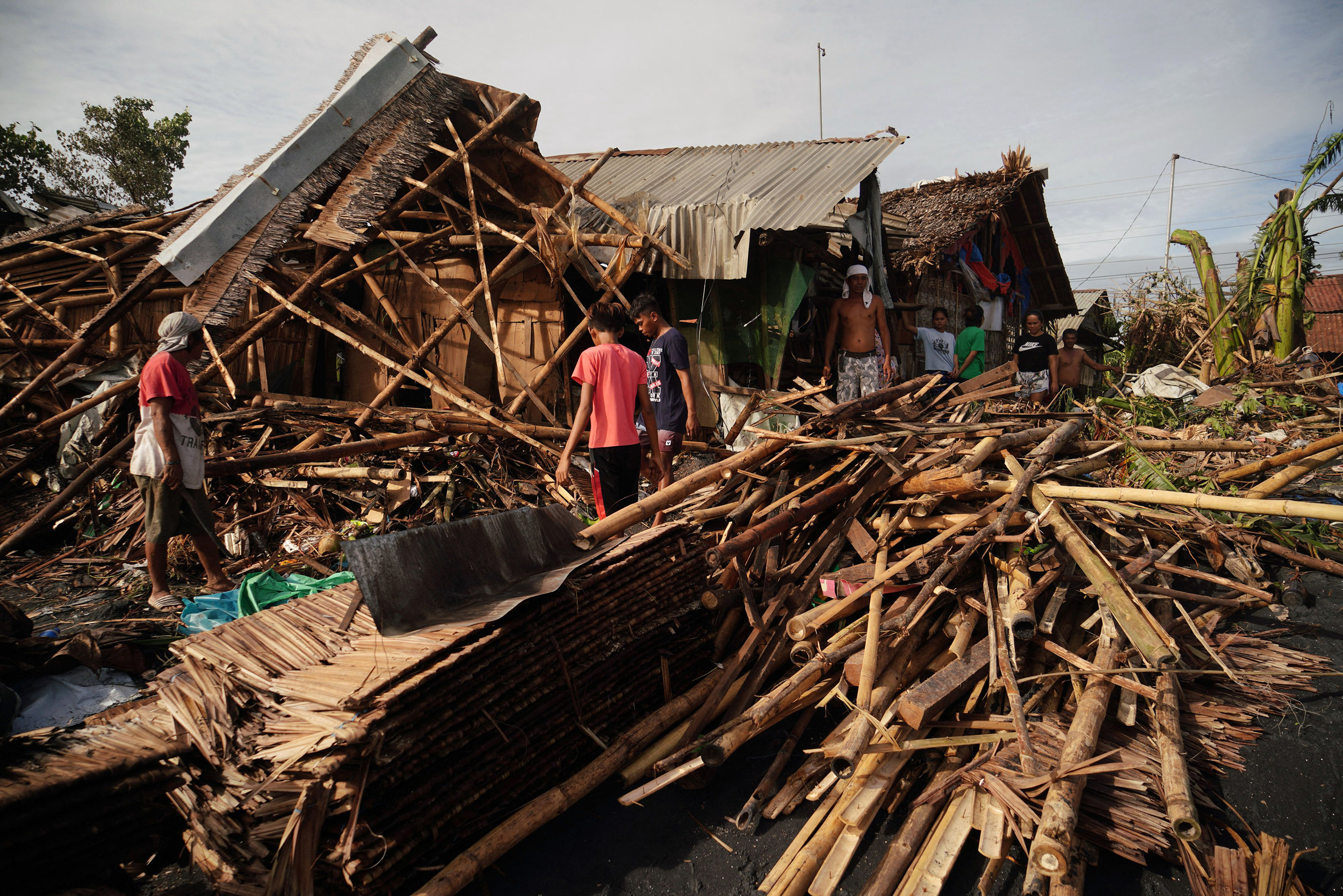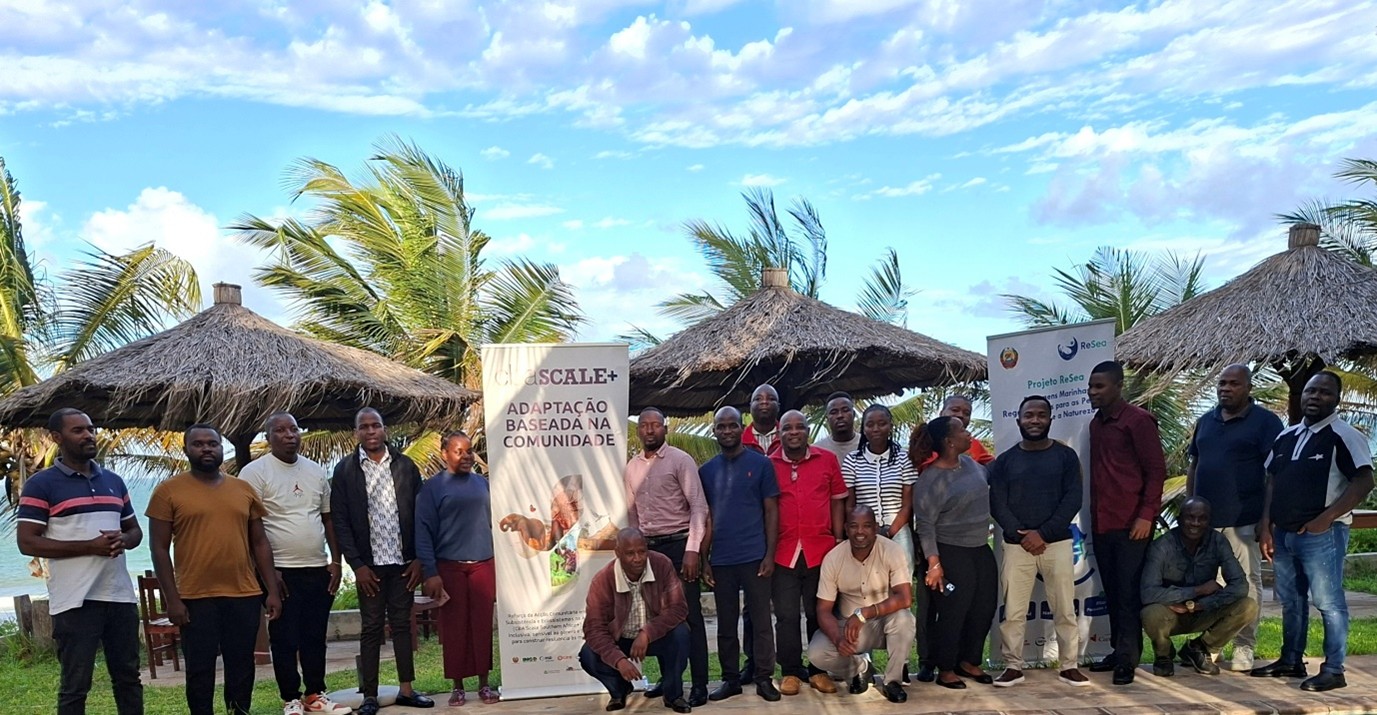Climate Disaster Survivors in the Global South Take Legal Action Against European Carbon Majors – Inside Climate News

Report on Climate Litigation and Corporate Accountability in Relation to Sustainable Development Goals
Introduction
- A trend of increasing climate liability litigation is being observed in Europe, targeting major carbon-emitting corporations in the fossil fuel and cement industries.
- These legal actions are primarily initiated by individuals and communities from the Global South who are disproportionately affected by the adverse impacts of climate change.
- The lawsuits represent a significant effort to advance SDG 13 (Climate Action) by demanding corporate accountability and SDG 16 (Peace, Justice and Strong Institutions) by utilizing legal systems to seek redress for climate-related damages.
Case Studies: Seeking Justice for Climate-Induced Disasters
Philippines: Typhoon Odette Survivors vs. Shell
- In October, 67 Filipino citizens initiated legal action against the oil major Shell, seeking compensation for losses incurred during Typhoon Odette in 2021.
- The typhoon’s devastating impact directly undermined several Sustainable Development Goals:
- SDG 1 (No Poverty) & SDG 11 (Sustainable Cities and Communities): The storm destroyed 1.4 million homes and caused approximately $1 billion in economic damages, severely impacting community resilience and economic stability.
- SDG 3 (Good Health and Well-being): The event resulted in over 400 fatalities and more than 1,000 severe injuries.
- The legal claim argues that Shell’s significant historical carbon emissions—over 41 billion metric tons—contributed to the climate change that intensified the typhoon. This directly links corporate production patterns to the failure to uphold SDG 13 (Climate Action).
- The case alleges that Shell violated the Philippine Constitution’s right to a balanced and healthful environment, highlighting a push for corporate adherence to national and global sustainability principles.
Pakistan: Flood-Affected Farmers vs. RWE and Heidelberg Materials
- Forty-three farmers from Pakistan’s Sindh region have launched a legal case against German energy company RWE and cement manufacturer Heidelberg Materials.
- The action seeks financial compensation for damages caused by the unprecedented flooding in 2022, which had severe consequences for multiple SDGs:
- SDG 1 (No Poverty) & SDG 8 (Decent Work and Economic Growth): The floods submerged 4.4 million acres of cropland, destroying livelihoods and devastating Pakistan’s rural economy.
- SDG 11 (Sustainable Cities and Communities): The disaster inundated one-third of the country and displaced 33 million people from their homes.
- SDG 10 (Reduced Inequalities): The case underscores the profound injustice of the climate crisis, where communities in the Global South bear the most severe consequences of emissions historically generated by corporations in the Global North.
- This legal challenge, filed in Germany, aims to establish that major emitters are financially liable for their contribution to climate-related harm, thereby reinforcing the principles of justice and accountability central to SDG 16.
Legal Framework and Corporate Responsibility
The “Carbon Majors” and Historical Emissions
- Research has traced approximately two-thirds of historical industrial carbon emissions to just 90 fossil fuel and cement companies, known as “carbon majors.”
- This data provides a scientific basis for litigation, arguing that these entities bear a historical and proportional responsibility for climate change, a core issue related to SDG 12 (Responsible Consumption and Production).
- Claimants argue that these companies were aware of the climate risks associated with their products for decades but actively engaged in disinformation campaigns, thereby obstructing progress on SDG 13 (Climate Action).
Evolving Legal Precedents
- German Court Ruling on Polluter Liability: A previous case against RWE in Germany established the legal principle that major polluters can be held liable for the impacts of their emissions, regardless of where those impacts occur. This set a crucial precedent for achieving climate justice under SDG 16.
- French Verdict on Corporate Greenwashing: A French court found TotalEnergies liable for misleading consumers with its “net-zero” advertising while simultaneously expanding fossil fuel production. This landmark decision advances SDG 12 by demanding transparency and holding corporations accountable for deceptive environmental claims.
- Growing International Momentum: Similar cases are proceeding in other jurisdictions, including a lawsuit by Indonesian islanders against cement company Holcim in Switzerland and another by a Belgian farmer against TotalEnergies, indicating a global movement toward corporate climate accountability.
Conclusion: Litigation as a Driver for the Sustainable Development Goals
- Climate liability litigation is emerging as a critical tool for advancing the SDG agenda by translating abstract principles of responsibility into concrete legal and financial consequences.
- These lawsuits directly promote SDG 13 (Climate Action) by creating pressure on carbon majors to align their business models with global climate targets.
- By seeking financial compensation for victims of climate disasters, the cases support the achievement of SDG 1 (No Poverty) and SDG 10 (Reduced Inequalities).
- The use of national and international courts strengthens SDG 16 (Peace, Justice and Strong Institutions), demonstrating that legal systems can hold powerful corporate actors accountable for their role in the global climate crisis.
- The collaborative efforts between affected communities, legal firms, and non-governmental organizations exemplify SDG 17 (Partnerships for the Goals), showcasing a united front in the pursuit of climate justice.
Analysis of Sustainable Development Goals in the Article
1. Which SDGs are addressed or connected to the issues highlighted in the article?
The article discusses issues that are directly and indirectly connected to several Sustainable Development Goals. The primary focus on climate change impacts, legal accountability, and human suffering links to the following SDGs:
- SDG 13: Climate Action: This is the central theme. The article revolves around the consequences of climate change, such as extreme weather events (Typhoon Odette, Pakistan floods, Hurricane Melissa), driven by greenhouse gas emissions from fossil fuel and cement companies. It also discusses actions being taken, specifically legal actions, to hold major polluters accountable.
- SDG 16: Peace, Justice and Strong Institutions: The article’s core narrative is about seeking climate justice. It details how individuals and communities from the Philippines and Pakistan are using legal systems in the U.K. and Germany to sue multinational corporations. This directly relates to ensuring access to justice and holding institutions (in this case, corporations) accountable for their actions. The text highlights the “unstoppable movement to make polluters pay” and end the “era of impunity.”
- SDG 11: Sustainable Cities and Communities: The impacts of the climate disasters described have devastated human settlements. The article notes that Typhoon Odette “destroyed 1.4 million homes” and the Pakistan floods “displaced 33 million people” and “swallowed entire villages,” destroying homes and critical infrastructure. This connects to the goal of making communities resilient to disasters.
- SDG 1: No Poverty: The economic devastation caused by these climate events pushes vulnerable populations further into poverty. The article mentions that Typhoon Odette caused nearly “$1 billion in damage” and the Pakistan floods led to “$30 billion in economic losses,” destroying livelihoods, especially for farmers whose crops were decimated.
- SDG 2: Zero Hunger: The article explicitly links climate disasters to food security. The 2022 floods in Pakistan submerged “nearly 4.4 million acres of cropland,” which was described as “devastating the backbone of Pakistan’s rural economy.” The farmers taking legal action are seeking damages for “two years of lost harvests.”
- SDG 3: Good Health and Well-being: The direct human cost of climate-related disasters is a key issue. The article quantifies the impact on life and health, stating that Typhoon Odette “killed over 400 people, severely injured over 1,000 others,” and the floods in Pakistan killed “at least 1,700 people.”
- SDG 12: Responsible Consumption and Production: The article focuses on the production side, specifically the role of “carbon majors” (fossil fuel and cement companies) in generating the emissions driving climate change. The greenwashing case against TotalEnergies directly addresses corporate responsibility in communication and advertising, linking to the need for sustainable practices and transparent reporting.
2. What specific targets under those SDGs can be identified based on the article’s content?
Based on the issues discussed, several specific SDG targets can be identified:
- Target 13.1: Strengthen resilience and adaptive capacity to climate-related hazards and natural disasters in all countries. The article is a testament to the failure to meet this target, as it details the devastation in the Philippines and Pakistan caused by climate-related disasters (typhoons and floods), highlighting the lack of resilience in these communities.
- Target 11.5: By 2030, significantly reduce the number of deaths and the number of people affected and substantially decrease the direct economic losses… caused by disasters. The article provides stark figures on deaths (over 400 in the Philippines, 1,700 in Pakistan), people affected (1.4 million homes destroyed, 33 million displaced), and economic losses ($1 billion and $30 billion respectively), showing the urgent relevance of this target.
- Target 1.5: By 2030, build the resilience of the poor and those in vulnerable situations and reduce their exposure and vulnerability to climate-related extreme events. The legal cases are brought by individuals in the Global South who have suffered personal and economic losses, demonstrating their extreme vulnerability to climate shocks as described in the article.
- Target 16.3: Promote the rule of law at the national and international levels and ensure equal access to justice for all. The article exemplifies this target in action, as citizens from one country (e.g., the Philippines) use the legal system of another (the U.K.) to seek justice against a transnational corporation. This is described as a key strategy to “hold companies accountable.”
- Target 12.6: Encourage companies, especially large and transnational companies, to adopt sustainable practices and to integrate sustainability information into their reporting cycle. The successful greenwashing lawsuit against TotalEnergies is a direct application of this target. The court found the company “misled consumers with its statements about its aspirations to achieve net-zero emissions,” penalizing it for non-transparent and misleading reporting.
3. Are there any indicators mentioned or implied in the article that can be used to measure progress towards the identified targets?
Yes, the article contains several explicit and implicit indicators that can be used to measure the scale of the problem and any progress towards the identified targets.
- Indicators for Targets 1.5, 11.5, and 13.1 (Disaster Impact):
- Number of deaths and injured persons attributed to disasters: The article explicitly states “Typhoon Odette… killed over 400 people, severely injured over 1,000 others” and the Pakistan floods were “killing at least 1,700 people.”
- Number of people affected/displaced by disasters: The article notes the Pakistan floods “displaced 33 million people.”
- Direct economic loss attributed to disasters: The article quantifies losses, stating Typhoon Odette “caused nearly $1 billion in damage” and the Pakistan floods caused “around $30 billion in economic losses.”
- Damage to infrastructure: The article mentions that Typhoon Odette “destroyed 1.4 million homes.”
- Indicators for Target 16.3 (Access to Justice):
- Number of climate liability lawsuits filed against corporations: The article mentions “two new climate liability actions,” refers to “more than 30 such lawsuits” in the U.S., and lists other cases in Switzerland and Belgium. This serves as an indicator of communities seeking legal recourse.
- Indicators for Target 12.6 (Corporate Accountability):
- Number of legal verdicts against companies for greenwashing: The article highlights a landmark indicator of progress: the French court’s verdict against TotalEnergies, which “marked the ‘first time in the world that a major oil and gas company has been convicted by the courts for misleading the public’.”
- Volume of CO2 emissions attributable to specific corporations: The article references the “Carbon Majors” database and states that Shell “has generated over 41 billion metric tons of carbon pollution,” which is used as a foundational metric for assigning responsibility in the lawsuits.
4. Summary Table of SDGs, Targets, and Indicators
| SDGs | Targets | Indicators Identified in the Article |
|---|---|---|
| SDG 13: Climate Action | 13.1: Strengthen resilience and adaptive capacity to climate-related hazards and natural disasters. | – Occurrence of extreme weather events (Typhoon Odette, Pakistan floods, Hurricane Melissa). – Volume of CO2 emissions from major polluters (e.g., Shell’s 41 billion metric tons). |
| SDG 11: Sustainable Cities and Communities | 11.5: Significantly reduce the number of deaths, people affected, and economic losses from disasters. | – Number of deaths (400+ in Philippines, 1,700+ in Pakistan). – Number of people displaced (33 million in Pakistan). – Number of homes destroyed (1.4 million in Philippines). – Direct economic losses ($1 billion from Typhoon Odette, $30 billion from Pakistan floods). |
| SDG 1: No Poverty | 1.5: Build the resilience of the poor and reduce their vulnerability to climate-related extreme events. | – Destruction of livelihoods (farmers losing harvests). – Financial compensation sought by survivors for personal and property damage. |
| SDG 2: Zero Hunger | (Implicitly linked to Target 2.4 on sustainable food production systems) | – Area of cropland destroyed (4.4 million acres in Pakistan). – Number of harvests lost by farmers (two years). |
| SDG 16: Peace, Justice and Strong Institutions | 16.3: Promote the rule of law and ensure equal access to justice for all. | – Number of climate liability lawsuits filed against corporations (cases against Shell, RWE, Holcim, TotalEnergies mentioned). – Use of transnational legal systems to seek accountability. |
| SDG 12: Responsible Consumption and Production | 12.6: Encourage companies to adopt sustainable practices and integrate sustainability information into their reporting. | – Number of legal rulings on corporate greenwashing (landmark verdict against TotalEnergies). – Corporate emissions data used for accountability (Carbon Majors database). |
Source: insideclimatenews.org
What is Your Reaction?
 Like
0
Like
0
 Dislike
0
Dislike
0
 Love
0
Love
0
 Funny
0
Funny
0
 Angry
0
Angry
0
 Sad
0
Sad
0
 Wow
0
Wow
0











































































